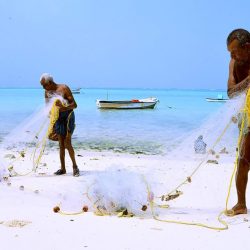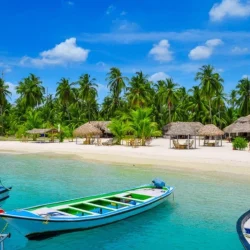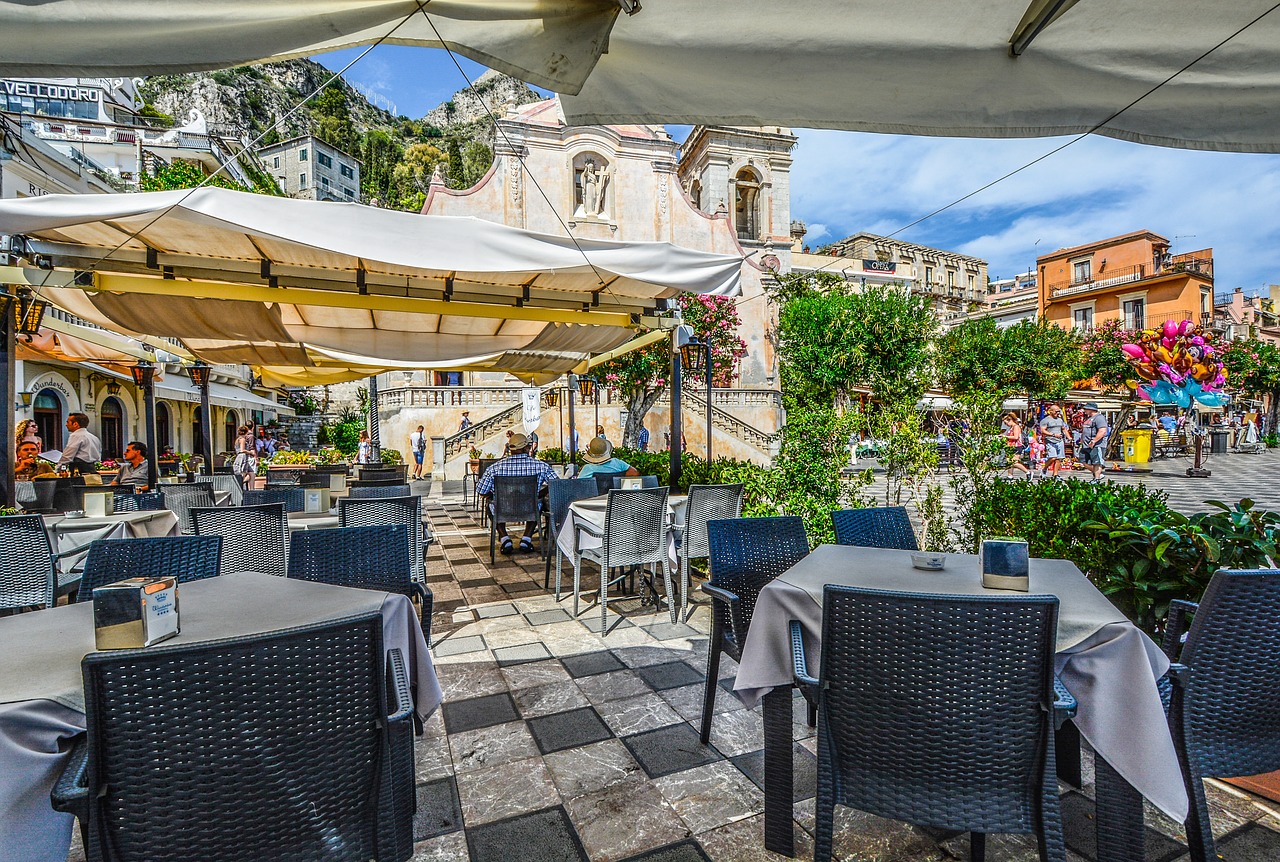Lakshadweep, a stunning Indian archipelago in the Arabian Sea, is in turmoil. Known for its crystal-clear waters, sandy beaches, and coral reefs, this group of 36 islands, of which only 10 are inhabited, has long been viewed as a paradise. However, recent government plans have sparked protests from locals who fear these changes threaten their identity, culture, religion, and land.
Unprecedented Protests
In recent weeks, islanders have united in protest against policies proposed by the new administrator, Praful Khoda Patel. On Monday, residents held a “black day” by flying black flags and wearing black clothing to voice their discontent. Even underwater protests were staged, with participants holding signs demanding justice.
The Save Lakshadweep Forum (SLF), comprising six political parties, has been leading these protests. Dr. Mohammed Sadique, SLF coordinator, said, “These are the largest protests Lakshadweep has ever seen.”
Rahul Gandhi, leader of the Congress Party, has also voiced his support, condemning the government’s plans and accusing the authorities of “destroying India’s jewel in the ocean.” He urged Prime Minister Narendra Modi to revoke the new policies.
Controversial Policies
One of the most alarming proposals for the residents is a new draft land acquisition policy, which would allow the government to take over private land for infrastructure projects. While Mr. Patel claims these changes would develop Lakshadweep into a tourist hotspot like the Maldives, critics fear it would lead to displacement.
Dr. Sadique calls it a “land grab” and says, “We are not against development, but it should respect the local people, their culture, and their land.”
Another contentious policy is the beef ban. Mr. Patel has introduced a ban on the slaughter of cows, calves, bulls, and buffalo, while also lifting a decades-long ban on alcohol. These measures, according to critics, are part of a broader effort to impose Hindu nationalist ideologies on a population that is 96% Muslim.
“Why impose a beef ban on a Muslim-majority area?” asked Althaf Hussain, a Congress politician. “Mr. Patel is imposing rules that don’t align with the islanders’ culture.”
Threat to Social Fabric
Mr. Muhammed Noushad, editor of dweepdiary.com, explained that residents widely support the alcohol ban because it aligns with their Islamic values. Lifting this restriction could lead to concerns about rising alcoholism, affecting the safety and harmony of the islands, particularly for women and children.
Critics have also voiced concerns about the administrator’s unfamiliarity with Lakshadweep’s culture and history. “These decisions have been made without consulting the people. It’s undemocratic,” said Mr. Noushad.
Crackdown on Dissent
One of the most alarming proposals is the introduction of an “anti-social” law, allowing police to detain individuals for up to a year without trial. Locals argue that such a law is unnecessary in a region where crime is virtually non-existent.
Protesters fear the law will be used to suppress dissent. Dr. Sadique says, “They want to arrest critics and silence opposition to their plans.”
Sedition Charges Against Aisha Sulthana
The government’s crackdown has already begun. Aisha Sulthana, a well-known model, actress, and filmmaker, was charged with sedition for calling Mr. Patel a “bio-weapon” during a TV debate. She was referring to his decision to ease quarantine rules, which locals believe led to a surge in Covid-19 cases. The islands, which were Covid-free until mid-January, have now reported over 9,000 cases and 45 deaths.
Despite the backlash, Mr. Patel defended his decision, blaming the rise in cases on the spread of the virus as economic activities resumed. Ms. Sulthana has been granted temporary reprieve by the Kerala High Court, but her case has raised concerns about the government’s attempt to silence critics.
Sulthana, however, remains defiant, saying her fight is for her homeland. Her lawyer, Faseela Ibrahim, called the sedition charge “intimidation” meant to deter others from speaking out.
As protests continue, the people of Lakshadweep remain determined to protect their islands, culture, and way of life from what they see as unjust government interference.

















